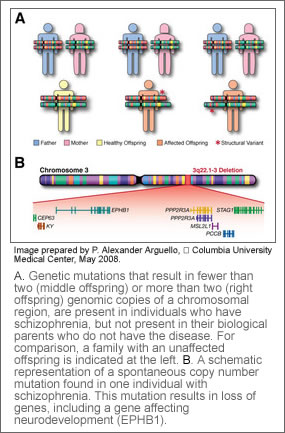David Tuller reports in the New York Times on Chronic Fatigue Syndrome. Sufferers have long struggled to convince doctors, employers and friends that their debilitating symptoms are not imaginary.
But the syndrome is now finally gaining some official respect. The Centers for Disease Control and Prevention, which in 1999 acknowledged that it had diverted millions of dollars allocated by Congress for chronic fatigue syndrome research to other programs, has released studies that linked the condition to genetic mutations and abnormalities in gene expression involved in key physiological processes.
Link to Article
Source: New York Times, Davis Tuller May 31 2008
Golf can be a good investment for the health, according to a new study from the Swedish medical university Karolinska Institutet. The death rate for golfers is 40 per cent lower than for other people of the same sex, age and socioeconomic status, which correspond to a 5 year increase in life expectancy. Golfers with a low handicap are the safest.
It is a well-known fact that exercise is good for the health, but the expected health gains of particular activities are still largely unknown. A team of researchers from Karolinska Institutet has now presented a study of the health effects of golf – a low-intensity form of exercise in which over 600,000 Swedes engage. [continue reading…]
 Scans of the genome of patients with schizophrenia have revealed rare spontaneous copy number mutations that account for at least 10 percent of the non-familial cases of the disease. Researchers at Columbia University Medical Center describe specific genetic mutations present in individuals who have schizophrenia, but not present in their biological parents who do not have the disease. These individuals were eight times more likely to have these mutations than unaffected individuals. This new data, reported in the May 30 on-line issue of Nature Genetics, will help researchers account for the persistence of schizophrenia in the population despite low birth rates among people with the disease.
Scans of the genome of patients with schizophrenia have revealed rare spontaneous copy number mutations that account for at least 10 percent of the non-familial cases of the disease. Researchers at Columbia University Medical Center describe specific genetic mutations present in individuals who have schizophrenia, but not present in their biological parents who do not have the disease. These individuals were eight times more likely to have these mutations than unaffected individuals. This new data, reported in the May 30 on-line issue of Nature Genetics, will help researchers account for the persistence of schizophrenia in the population despite low birth rates among people with the disease.
Researchers scanned the genome of 1,077 people which included 152 individuals with schizophrenia, 159 individuals without schizophrenia, and both of their biological parents for copy number mutations. They found mutations, either a gain or loss of genes, in 15 individuals diagnosed with schizophrenia that were not present in the chromosomes of either biological unaffected parent. Only two of such mutations were found in those without schizophrenia. Study subjects were from the European-origin Afrikaner population in South Africa, a genetically homogenous population that is ideal for genetic evaluation. [continue reading…]
Medicine or Myth? Dr. Norman Swan puts another popular presumption through the rigours of his hard analysis when he poses the question: “Is there good science to support the commonly held belief that the power of positive thinking can aid an individual in their fight against cancer?
Link to view 5:20mins
Source: Catalyst, ABC

